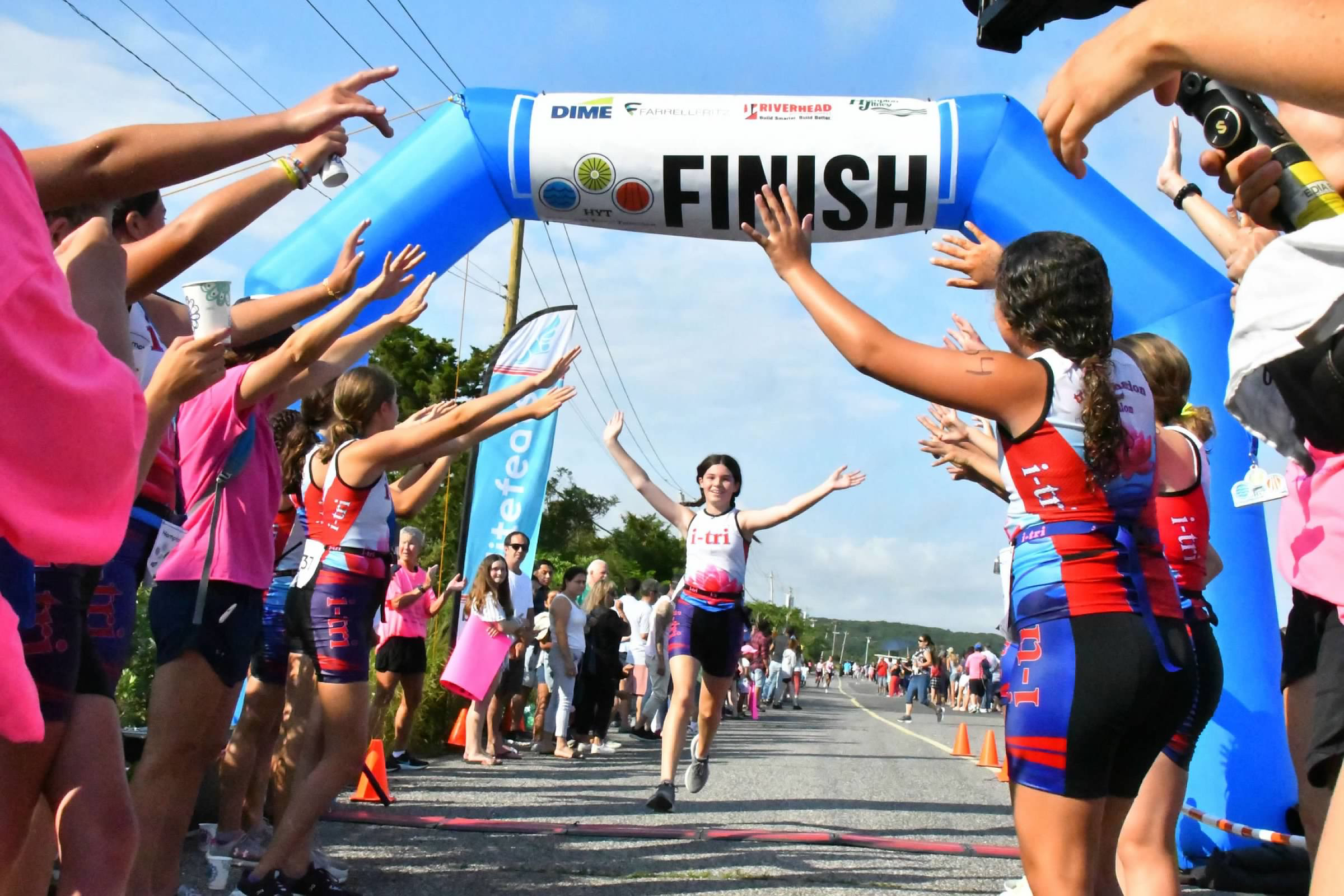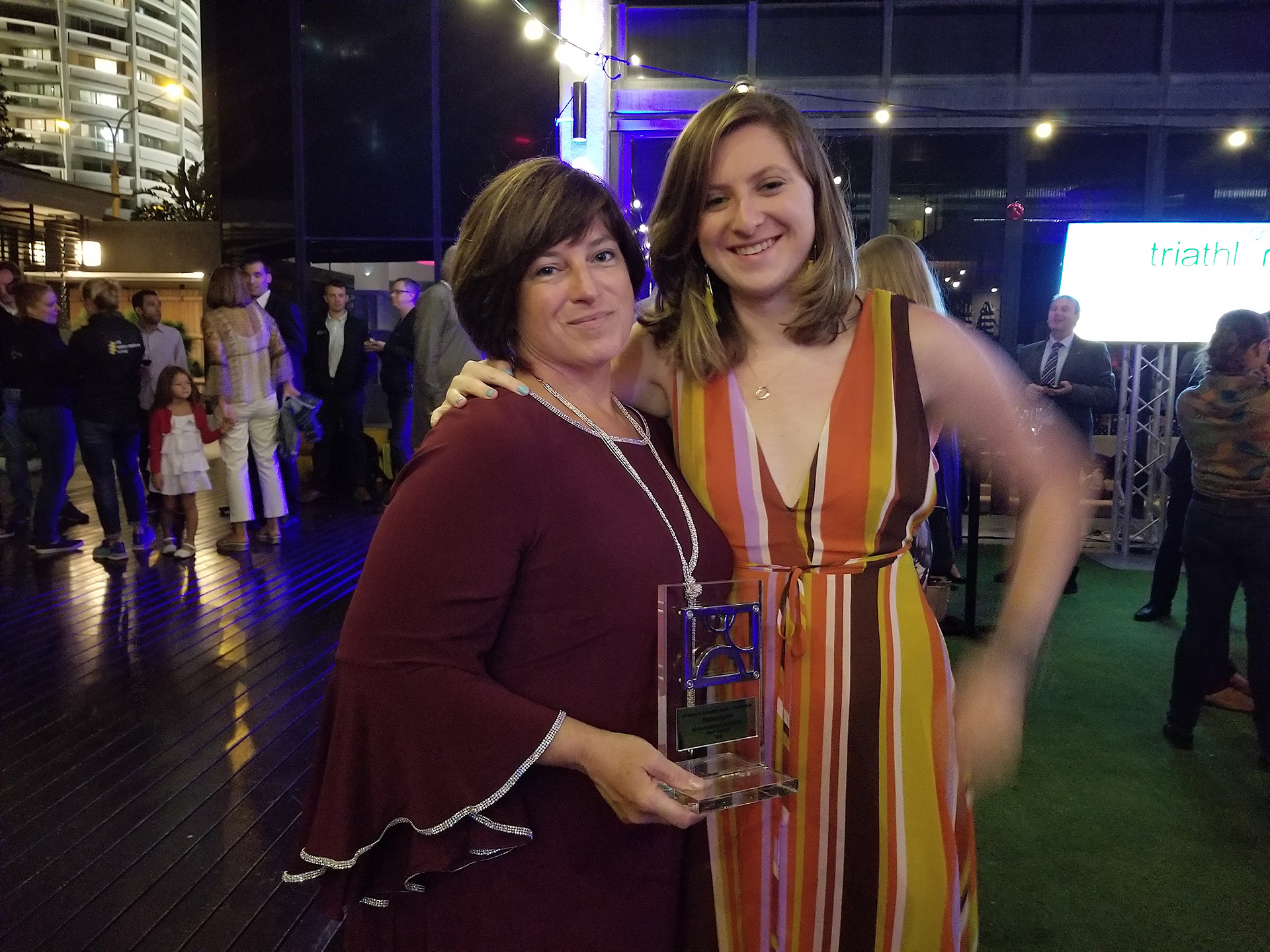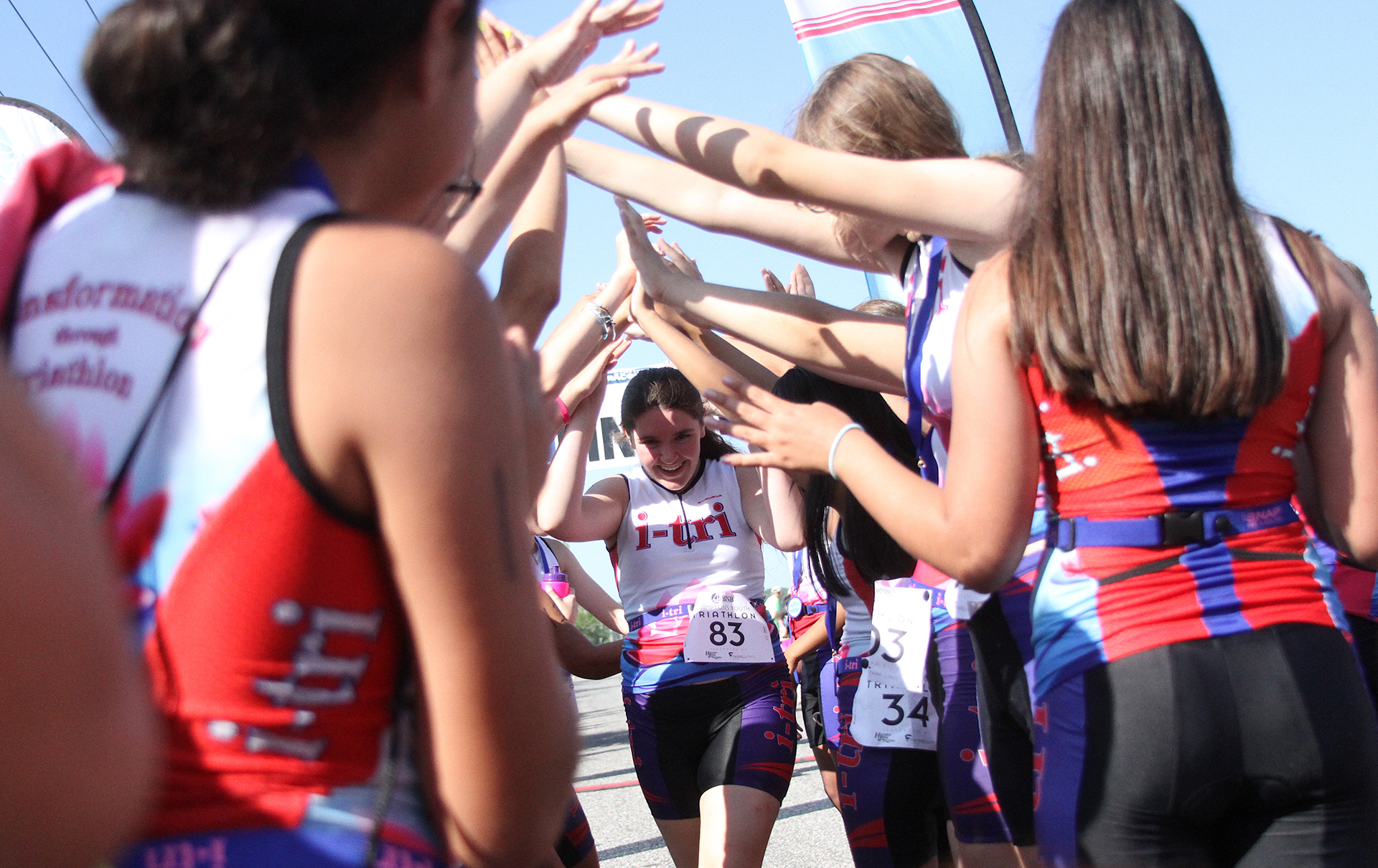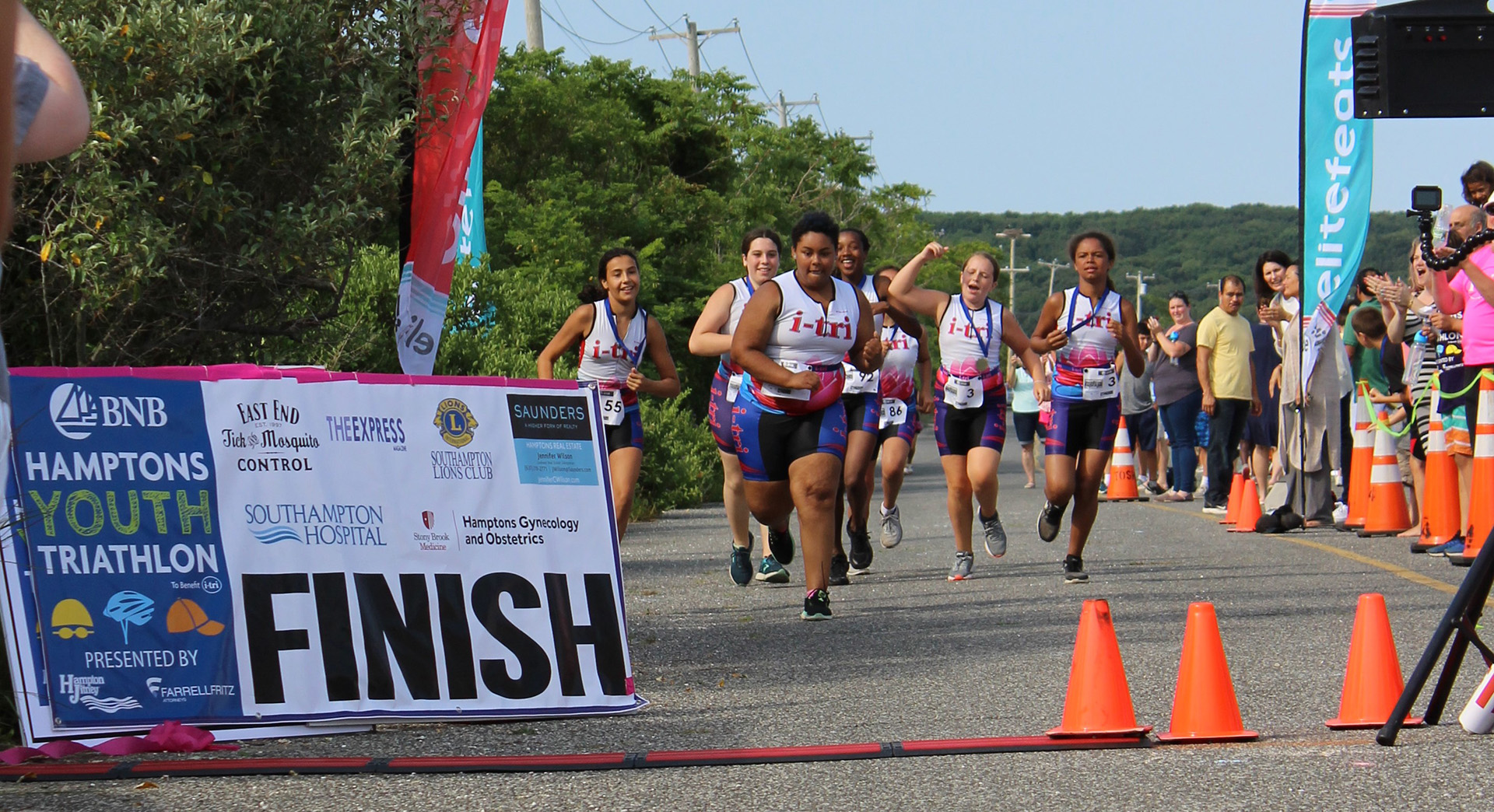The Power of Empowerment: i-tri Helps Girls Succeed in School & Life

Math, science and other school subjects are useful building blocks to prepare children for their future careers; however, without the self-esteem and self-efficacy needed to envision themselves finding success in that future, they may not get very far. This is especially troubling for adolescent girls — a group that studies have shown is more likely to lose confidence or plateau in the middle school years, while their male classmates largely gain confidence.
Bridging this confidence gap on the East End is i-tri, a goal-based program building up young girls’ self-esteem, self-efficacy, socialization, STEM proficiency and athleticism as they work toward the finish line at the end of their first triathlon.
Since launching in 2010, i-tri has worked with more than 1,000 underserved adolescent girls at 12 local partner schools spanning Montauk to Mastic. Each of the approximately 150 annual participants receives over 100 hours of free professional programming from February to July that addresses physical, mental and emotional wellness.

Theresa Roden Explains i-tri
“Adolescence is hard no matter what, but to be an adolescent girl has always been an incredibly, probably one of the most, difficult times of life,” says Theresa Roden, i-tri founder and chief visionary officer. “In today’s world, that has just become exorbitant with the introduction of social media and these unrealistic expectations that girls and people put on themselves from what they’re surrounded with.”
Completing a triathlon is a daunting feat for most adults, so it may seem nearly impossible for middle schoolers between the ages of 11 and 14, but i-tri takes great care to empower the young women participating and provide them with the training necessary to accomplish any challenge they set their minds to.
The youth-distance triathlon is used as a teaching tool and metaphor for life’s journey: We must set goals, face adversities and ultimately cross the finish line to success. Though Roden notes that for i-tri girls training for the triathlon, “The finish line is just the beginning.”
She continues, “The levels of confidence in our participants, once they’ve gone through the program, that confidence gap gets smaller, and what we see is our girls go on to achieve great things. They go on to become leaders in their schools, they’re the ones going out for sports teams and becoming student council presidents, leading clubs in high school, really setting big goals, especially around STEM (science, technology, engineering and math).”
In a 2014 study conducted by Jennifer Gatz, Ph.D., a former i-tri participant, confirmed that i-tri produces an “increase (in) confidence, self-determination and academic achievement though social support structures” and that those benefits “positively influenced goal setting, strategies, health, fitness, motivation and academic achievement,” according to the research article’s abstract. Roden adds that the research further revealed improved performance in science-based classes.
Roden and her team would later evolve the i-tri program based on the findings of Gatz’s research, infusing the triathlon training with experiential learning in science topics.
“We looked at everything we do in i-tri, and how science-based it is, and integrated it into everything we do,” Roden says of the team’s decision to develop STEM programming. “I always say, ‘What’s a better way to understand an incline plane than riding uphill on a bike?’ Drag — we do a lesson in the pool where we have them swim a lap of the pool as normal, and then we ask them to put on a sweatshirt and try to do the same thing. You’re going to understand what drag is like you never did.”
A more recent evolution of the i-tri program focus has come from witnessing the effects that remote learning has had on adolescents.

“What we’re seeing across the board is that not only did they lose a year of learning, they lost a year of emotional growth,” Roden says, adding that the pandemic exacerbated the mental health crisis that had already taken hold of those growing up in the digital age.
Programs have now placed additional emphasis on mental health, social-emotional learning and trauma-informed care — a fitting evolution since one of the first lines of treatment for trauma patients is pattern repetitive movements such as walking, running and swimming.
“It was our thought that, collectively, all of us as a race on the planet during this time have gone through a collective trauma, but it really hurt adolescents the most,” she explains. “When you think about what adolescence is about, it’s about breaking away from your family in small ways, and really forming relationships with your peers, learning from your peers and connecting in relationships. And that was all taken away from them. At the time they needed their peers the most to develop, they were stuck at home.”
Roden continues, “Many of (our participants) struggle so much with low self-esteem, low confidence, anxiety, depression, all of these things, and for some of them for the first time, they’ve found their people. They feel heard and connected in ways they never did before.” She adds that girls who complete the i-tri program are welcome to come back as a mentor in grades 7 or 8, and potentially as a paid coach or lifeguard in high school, “Those are the girls who usually come back year after year, because they’ve gotten so much out of it and want to give that to the next generation of girls behind them.”
Dr. Maria Pentcheva Burns, licensed child psychologist and founder of Hamptons Mindful Youth, can confirm the tangible positive effects i-tri has had on her daughter, who completed the 2022 triathlon in July.
“My daughter was never really athletic but did love running around and swimming. Because of her self-esteem, when it came to doing school athletics, she was very shut-down, and she wouldn’t apply herself because she thought comparatively to others,” she says. “With this program, the focus was on completing this at your own pace … It’s really changed how she sees herself, and it really did build up her self-esteem and self-efficacy when it comes to seeing herself as an athlete.”
Pentcheva Burns adds that since i-tri, her daughter has developed a “growth mindset” and the courage to join the field hockey team and even complete the Sag Harbor 5K alongside her.
As a nonprofit that’s not a volunteer-run organization, i-tri pays their certified athletic coaches and program leaders well to ensure each girl receives the same level of attention and empowerment. Between the staff, transportation and equipment, it costs approximately $3,500 for each participant in the six-month program. They receive funding through grants, donations and events such as the upcoming Hamptons Ride and Wine.

i-tri Girls Hamptons Ride and Wine
The fifth annual i-tri event takes place adjacent to Channing Daughters Winery on Saturday, October 1 (rescheduled for Sunday, October 9) and offers cyclists the choice of a 10- or 30-mile course, both of which end at a sculpture garden for a buffet lunch and wine tasting.
The $175 registration fee can also be used to skip the ride altogether and join the group exclusively for the wine luncheon portion. And the Ride and Wine is the kick-off to i-tri’s Giving Day Campaign, which culminates in the day-long Give-a-Thon on October 27.
Anyone interested in the Ride and Wine can visit itrigirls.org/event/ride-and-wine for more info.
“It’s truly an honor to have built an organization that really strives to make a difference in individual lives,” Roden says. “It’s this capacity that comes from your heart and your soul to give everything you’ve got to support young women. And these beautiful souls who are trusting when we say, ‘Just give it a try. You may not think you’re going to be able to do this, but if you just trust in us, we will do everything in our power to make sure you’re successful.’”
To learn more, visit itrigirls.org.



